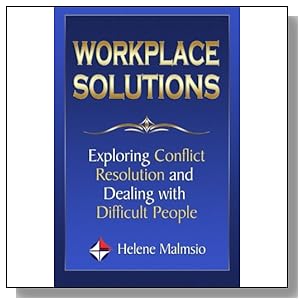How to Move On When You Make a Mistake
If you are like most people, then you have probably lost quite a bit of sleep to ruminating on past mistakes. Everyone does that. They lay in their bed at night and just as they are about to sleep, they start dwelling on some mistake they made. Sometimes the mistake was yesterday and sometimes the mistake was a decade ago.
Thankfully, there are a lot of different strategies that you can try to make getting over a mistake a lot easier. In this article, you will find out a few different ways that you can get over mistakes, no matter how severe.
Look for Some Positives
No matter how severe a mistake is, there is a good chance that it may have some positive aspects to it. You have to try and look for a silver lining in any mistake and focus on that, instead of the negatives.
A good example of this would be mistakes that cause you to learn something. We all make mistakes, but we also all learn from our mistakes as well.
Focus less on the mistake, and more on what you learned as a result of the mistake.
Look at the Mistake in Context
One thing about humans is that we tend to really overinflate the impact of mistakes in our mind. Sometimes it can be helpful to try and distance yourself from a mistake and ask yourself “did it really matter in the end?”
This happens a lot with social gaffes. People say the wrong thing to someone and assume that the other person was very offended by it and is thinking about it; however, the reality is often that the person has forgotten about the conversation entirely.
So, it is worth distancing yourself from a mistake and asking if the mistake is really as bad as you are making it out to be.
Do Something to Make Amends
A big reason why so many people dwell on mistakes is that they don’t ever do anything to make up for the mistake. Making up for the mistake, if that’s possible, can really help you to stop dwelling on it.
Obviously, this doesn’t apply to every mistake, but if you can think of a way to try and repair the damage done by a mistake that you made, that will go a long way towards helping you to overcome the mistake and move on.
Related Reading: Comprehensive Self development online guide
How to Solve Big Challenges
Life comes with challenges. How you handle challenges says a lot about your life. Big challenges can be especially intimidating.
Many people feel overwhelmed when faced with adversity, but this is unnecessary. All challenges, both big and small, can be handled with the same basic strategy.
When you feel confident that you can handle any challenge, you have more opportunities available to you.
Use this process to deal with the challenges in your life proactively:
1. Set a goal. Goals are helpful in many situations, including overcoming a big challenge. If you want to be successful, set a goal. Setting a goal accomplishes several things:
◦ It focuses your time and attention on a solution, rather than putting your attention on the problem.
◦ It makes it clearer how you should be spending you time.
◦ It gives you the best chance to overcome your big challenge.
◦ It makes you feel like you have some control over your life.
◦ If there’s nothing you can do about the challenge you’re facing, avoid spending any time or energy on it. Work on something else instead.
2. Avoid wasting time. If you have a big challenge in your life, you can’t afford to waste your time on silly things. Identify you biggest time-wasters and commit to spending that time on your solution instead. You might find that overcoming your challenge wasn’t as difficult as you thought it would be.
3. Create a plan. You have a goal, and you’re not going to waste time. So, now you need a plan that will help you accomplish your solution.
◦ What has to happen immediately before you accomplish your goal? Keep working back until you reach an action you can take today. Now, all you have to do is perform that action. What could be simpler?
◦ Just keep going like this, step by step, to make a successful plan.
4. Get help. The more resources you can utilize to make your solution a reality, the better the odds of success. It will also speed up the process greatly. Get whatever help you can. Now isn’t the time to be bashful. You can always repay the favor at a later date.
5. Visualize success. Visualization makes your objective clear. It also gives you a boost of confidence and keeps you focused. See yourself successfully overcoming this challenge. Visualize a few times each day.
6. Persevere. If you have a plan, you’re working your plan, and you’re not wasting time, the only thing left to do is hang in there. There’s not much you can’t accomplish if don’t give up. Keep working your plan and persevere!
7. Determine how to avoid a similar situation. If the treads came off your tires, now you know to replace your tires sooner. If your ex-boyfriend stole all of your money, you know that you need to protect your finances better.
◦ Consider how this challenge came to be, and how you can prevent it from happening again. It would be a shame to go through all of this grief and not learn from it. Use your challenges to ultimately become more capable.
◦ Just be sure to solve your challenge before taking this last step. Focus on your solution first. Worry about prevention later.
The bigger your goals and aspirations, the bigger the challenges you’ll face. It’s important to have a strategy for dealing with challenges when they arise.
The worst thing you can do is nothing. If there’s a solution, it’s important to actively pursue it rather than sitting around worrying. Your success is largely determined by your ability to overcome challenges.
If you’re facing a big challenge, do what you can to find a solution. Avoid the tendency to sit around and worry about the situation. Be solution-focused!
How to Retain More Information from the Books You Read
Have you ever read a book to learn something, but you don’t feel like you really remember what you read? It’s a common phenomenon.
We learn lots of things in school, but we’re not taught how to read a book and retain the information. It’s an important skill to have.
It can take quite a bit of time to read a book. It would be a shame not to get the most out of that time.
Get the most out of the books you read with these strategies:
1. Read in an environment conducive to remembering. Ideally, you have options regarding where you read. Some places are better than others. Do you concentrate better in a silent environment? Perhaps you read better with some background noise like classical music or in a coffee shop.
2. Read at the right time. When are you best able to concentrate? In the morning? In the evening? After a workout? After a nap? After a meal? On an empty stomach? Give yourself the best chance to retain what you read by ensuring that you’re at your best.
3. Know what you’re trying to learn before you begin reading. What is the point of reading the book? What do you wish to gain from reading it? Be clear on the purpose of why you’re reading this particular book in the first place. You’ll notice the relevant facts and ideas if you know what matters to you before you begin.
4. Skim the book first. Skim the chapter you’re about to read. Understand how long the chapter is and what it’s covering. If there are any bullet points at the beginning or end, slow down and absorb them.
5. Take notes. If you have the option of taking notes directly in the book, that can be effective. At least you’ll know where to find your notes! Many people choose to keep a notebook for each book they read. Write down the important ideas along the way. Include your thoughts, too.
6. Reflect on what you read. After reading a chapter or a certain number of pages, reflect on what you read. Look back over your notes. Think about what you already know on the subject. How does this new information fit in with what you already know?
◦ Avoid reading further until you’ve completed this process.
7. Use the information. It doesn’t make much sense to read a book on dieting, investing, or meditating without using the information. Develop a plan for applying what you’ve read. Take it slowly and just implement one new item every couple of days.
8. Consider reading the book again. It has become popular for people to claim that they read a book a week, or even a book a day. It’s not possible to read a book in a day, retain the information, put that information into practice, and read another book the following day.
◦ It would be far more effective to read a few books, a few times each, over the course of a year.
◦ Try this experiment. Read a book, and then a week later read it again. Notice how you found things in the second reading that you don’t even remember seeing in the first reading.
Try this process the next time your read a non-fiction book. You can perfect the process to fit your needs and idiosyncrasies. Your time is valuable, and books take time to read. Make the most of your valuable time by retaining more of the information you learn from books. Enjoy your reading!
Related Reading: Comprehensive Self development online guide
Comments for How to Move On When You Make a Mistake
|
||
|
||
|
Click here to add your own comments Join in and write your own page! It's easy to do. How? Simply click here to return to Self Help. |

"Power Tips" magazine is back!
You Get A Free Complete Self Help Report delivered to your email box every edition, plus you get a free PLR article and other great gifts!
SUBSCRIBE BELOW ... I promise you will want to USE what you learn!
I really want to know what you think of this site, this page, and to hear your tips or suggestions about it.
So please share your story or simply add a Comment in the comment box.
If you feel that the information on this page has been useful to you please give it a Like or share it with your friends - thanks!!
"You are a life Saver!!
I recently discovered this site and I can tell you that my life has not been the same. I now come here EVERYDAY and spend at least 1 hour.
I used to spend that time browsing online fashion and beauty
magazine which just means that I spend more. Now I have replaced that
habit with coming here.
In future I will think about contributing articles as well. Thank you! Thank you!! Thank you!!! and God bless"
Contact Us | About Us | Terms of Use | Privacy Policy | FAQ | Testimonials
Amazon and the Amazon logo are trademarks of Amazon.com, Inc. or its affiliates. As an Amazon Associate I earn from qualifying purchases. Product prices and availability are accurate as of the date/time
indicated and are subject to change. Any price and availability
information displayed on [relevant Amazon Site(s), as applicable] at the
time of purchase will apply to the purchase of this product.














